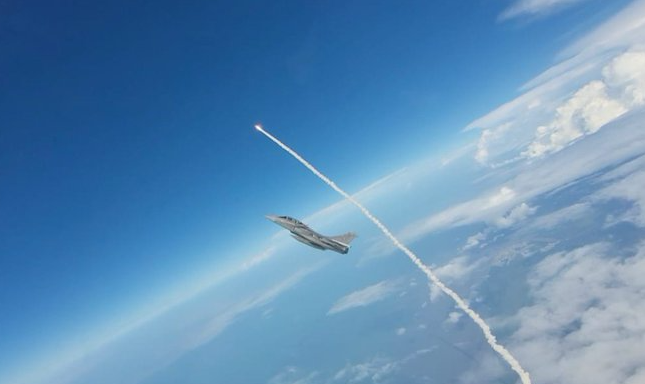Europe’s eagerly anticipated Ariane 6 rocket soared into space on Tuesday in a successful inaugural flight, marking a pivotal moment in the continent’s space ambitions and restoring its independent access to space.
The launch from the European Spaceport in Kourou, French Guiana, was hailed as a triumph despite minor deviations from the planned trajectory towards the end of the mission. European Space Agency (ESA) Director Josef Aschbacher described it as a “historic day for Europe,” while Philippe Baptiste, head of France’s CNES space agency, declared confidently, “Europe is back.”
The Ariane 6 launch, initially delayed for an hour due to a minor issue, carried microsatellites and experimental payloads into orbit. The mission encountered a slight setback with the rocket failing to follow its intended re-entry path into Earth’s atmosphere, instead landing in the Pacific Ocean. Despite this, ESA and partner agency officials remained upbeat, emphasizing the successful delivery of satellites into orbit.
“The mission is not yet complete,” cautioned Martin Sion, CEO of ArianeGroup, referring to the planned controlled re-entry of the Vinci engine. This final phase, expected hours after liftoff, aims to safely dispose of the engine to prevent space debris.
Ariane 6, designed to accommodate payloads ranging from geostationary satellites to low-Earth orbit constellations, represents Europe’s renewed push for sovereignty in space. Following setbacks with previous launch vehicles and reliance on international partners like SpaceX, Ariane 6’s successful debut signals a resurgence in Europe’s space capabilities.
The launch drew spectators worldwide, including thousands in Toulouse, France, who gathered at the Cite de l’Espace museum to witness what many described as a “magical” moment. The event underscores Europe’s commitment to competing in the increasingly competitive global space industry, despite recent challenges and setbacks.
Looking ahead, ESA plans to ramp up Ariane 6 operations with several commercial launches scheduled in the coming years. This includes deploying components of Amazon’s Kuiper constellation, despite recent decisions by some European operators to opt for SpaceX’s services over Ariane 6.
As ESA and its partners celebrate this milestone, attention now turns to optimizing Ariane 6’s operational efficiency and reliability for future missions, ensuring Europe remains a key player in the space race for years to come.



